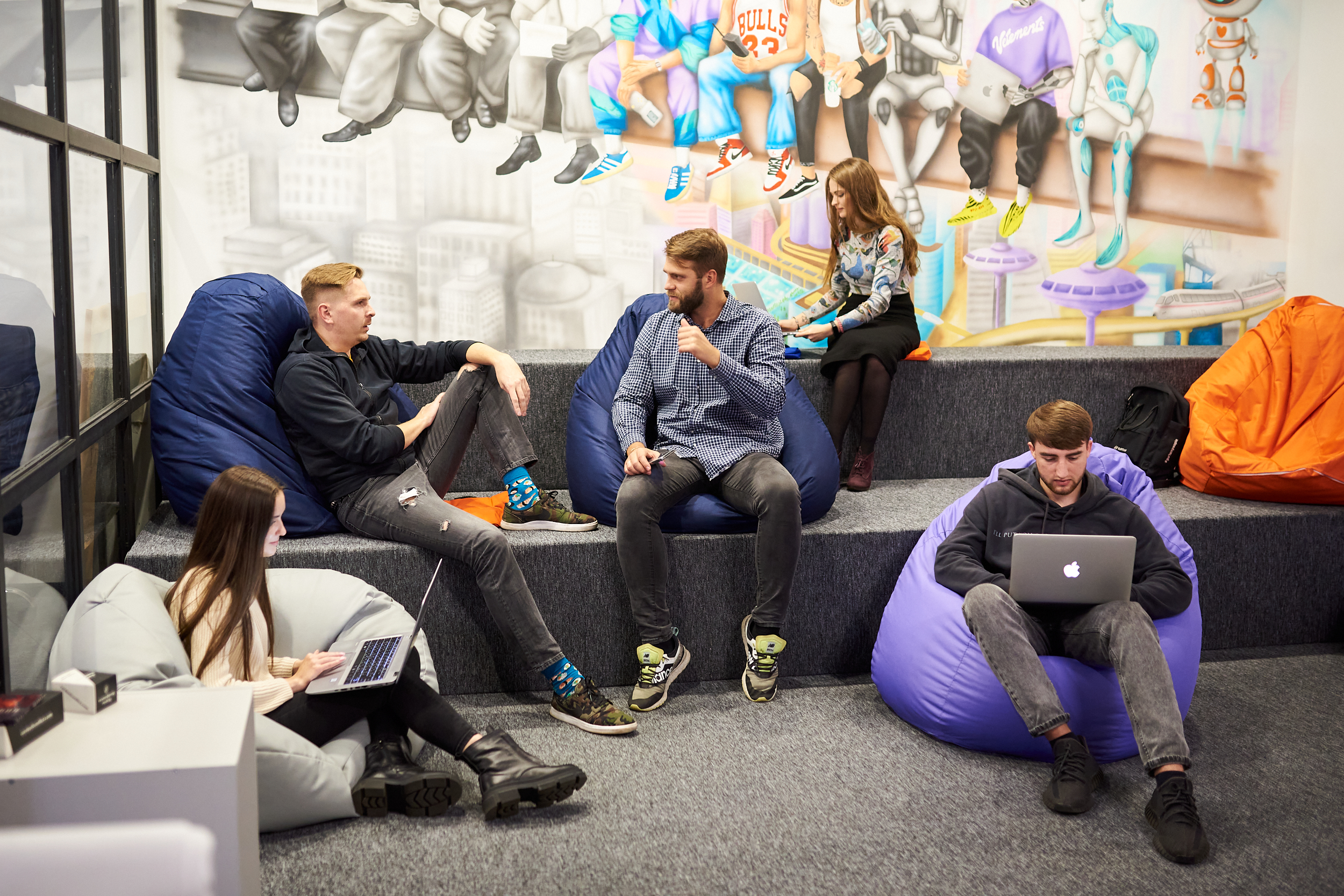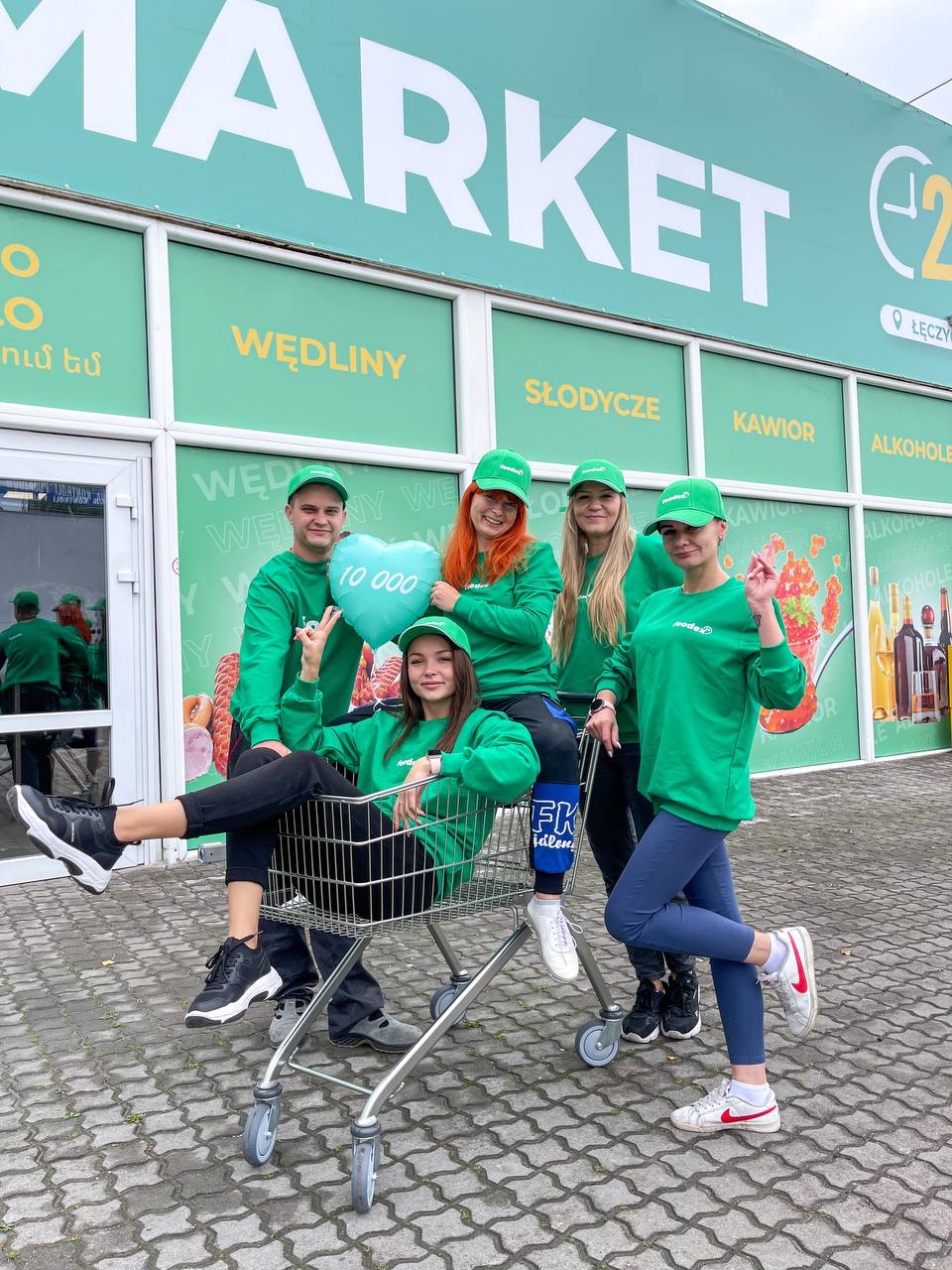Unicorn ambitions. A Ukrainian online supermarket conquers Europe by offering local products

Pandemic lockdowns coming one after another have been a major problem for businesses in all countries. Сafes, restaurants, hotels, and retail shops that prospered not so long ago went bankrupt. Only flexible businesses and entrepreneurs who can detect future trends and demands managed to survive and even increase their income. Vladislav Savchenko is a Ukrainian entrepreneur, owner of innovative online food store Foodex24. Having conquered Ukrainian market Foodex24 has already opened a base in Poland and is planning to conquer the European Union.
“How have you managed to keep your warehouse in order?” This is the question the competitors and other businesspeople asked Vladislav Savchenko, the Foodex24 online food store owner from Ukraine.
His answer is: “It’s very simple. My wife and I came to the warehouse at nine in the morning and spent fifteen hours cleaning it up to show others how things should be there, with our own example.”
Vladislav is not the only one who likes this approach. He was surprised to learn that Yuriy Kosiuk, the owner of the Mironivskiy bakery plant, a billionaire and Ukraine's fifth-richest person, said he would love to come to the Foodex24 warehouse one Sunday and deliver a few orders by himself!
”I thought someone made it up,” – said Vladislav.
However, Kosyuk called on Friday to warn that he would be on Sunday. Vladislav says that the first experience of working with an oligarch amused him. A buyer opens a door, and he asks:
"Tell me, why are you ordering from us?"
"Shouldn't we?" - the client inquires?
After overcoming the confusion, Kosyuk found out the reasons - good prices, high-quality fresh food, and fish, as well as fast delivery. These are the main factors for the success of the business of Vladislav Savchenko.
Today, Vladislav’s biggest project – Foodex24 – generates half a million dollars a month in Ukraine alone, and this autumn, the company has expanded into Poland.
Retail business was not the first one a simple 29-year-old guy from Zaporizhzhia tried to start. He got the most expensive education – from his own experience, testing all his ideas himself.
His first business was organizing parties. Still naive, he had no idea of what he was going into. He spent summers working at a construction site, and once he grew up, he decided that nightclubs are a good business opportunity. He was wrong.
“We managed to organize two parties, yet my partner and I lost $4000. We organized a party, hired the best DJs, but our competitors, who knew better how this business works, arranged their own party the day before ours and sold cheaper tickets. We failed and were extremely disappointed,” – as Savchenko recalls.
His next business project ended in its own natural way. Vladislav created one of Ukraine’s first online shops. He had a snowboarding community with many subscribers on vKontakte, back when that platform was still young. “Overnight, I deleted all the content there, renamed the group. People kept writing comments, and I kept deleting them. It wasn’t a nice thing to do, but I had no idea about any other way of handling this,” – said Vladislav. He used the group to sell phone accessories. “The margins were insane: 200–500%, and no competition. By then, I had already learned how to do targeting and how to negotiate with the suppliers from China,” – says Savchenko.
Vladislav was interested in boxing and weightlifting, which led him to opening a fitness club. “We occupied the entire floor, and this was my first major business, with about 30 employees. I taught myself how to delegate tasks and to manage a team,” – said Vlad about this period.
At his gym, Vladislav met people who were also interested in creating an IT business. “I’ve dreamed about getting my own IT company, and I met a good person who liked this idea. So we started working together.” – says Vladislav.
Savchenko and his business partners established the Powercode company that successfully functions before and after the COVID-19 pandemic. In fact, it was COVID-19 that helped Vladislav and his IT team find a new niche.

Photo: Powercode IT company office.
“Everyone started closing, canceling events,” – Vladislav thus commented on the situation we all see for the last year and a half. The lockdown affected Ukraine as well. Offices got empty, with everyone stuck at home.
“My family and I tried to stay at home all the time, which appeared to be mission impossible. We really tried ordering groceries and other food products, but the promised delivery time was up to 7 days. Come on; you can’t just sit at home and wait for an entire week until your food gets delivered. This is completely detached from reality,” - says Vlad. Personal inconvenience activated Vladislav’s entrepreneurial mind, and he saw a whole wide range of opportunities.
“I thought it would be great to use my own IT company to set up an online storefront for a retail chain selling groceries, and I had friends in the delivery and taxi business. They had about 700 vehicles. This was an opportunity to set up logistics for food delivery. Since big chains usually lack flexibility and reply speed, I decided to start my own business. He discussed the details with developers from Powercode and decided that he could build this business from scratch in two weeks, get promoted, and show the entire process on his YouTube channel. And that’s what he did.
At first, Foodex24 had 30 employees. They were Vladislav’s employees from different teams that had to pause working on the projects because of the pandemic. Then they started hiring people with skills and knowledge they didn’t have: retail, logistics, business processes.
“We decided to create Ukraine’s first project in this field, with our own warehouse, call center, delivery service, and in-house IT ecosystem,” – says Vlad. He once again decided to test everything by himself: “I’ve spent almost three months delivering orders. Our goal was to ensure fast delivery that would take 90 minutes maximum. Yet, in the very beginning, sometimes we were five hours late.”
Luckily, Vlad was never afraid of making mistakes. He pointed out that – “In just one year, we got so much retail experience that you normally get over a decade when working in this industry. And that was our goal - to make all the rookie mistakes at once so that we know what we’re doing wrong.”
Foodex24 operates online, breaking the stereotype of grocery shops being primarily brick-and-mortar.
Foodex24 has achieved its goal of fast high-quality food delivery. Today, the company’s monthly revenue is half a million dollars, increasing every month. Its online retail market share in Ukraine is 4–6%.
“The groceries we sell are all fresh, and everything you see in our online shop, you can buy and have it delivered right away. The problem with aggregators and traditional chains is that they have products in their lists that are simply not available at their warehouses. They either offer alternatives to the missing products or just don’t deliver them. We’re not like that: you get what you see,” – said Vlad.
The price of launching a project as big as this in Ukraine is about $300 000. Vladislav received multiple offers from investors who wanted to put their money into this promising venture.
“A month later, we had 60 people who wanted to invest at least $100 000. This is huge money people have saved for some businesses but simply can’t find the project right for them. Even though we never sought investments and currently use the assets of Powercode (the one that developed this online supermarket), investors continue to find us very interesting for putting their money in,” – says Vladislav Savchenko.
Overall, we invested over three million dollars, including about $800 000 on launching in Poland, EU. This fall, Foodex24 announced purchasing Fresh Food online delivery and rebranding to Goodex in Ukraine. In Poland, the brand stays as Foodex24.
Today, about six thousand people use Foodex24 in Poland. Vladislav spotted a good niche here as well – in Poland, the company specializes in selling foods from Ukraine and CIS. This allows Foodex24 to successfully compete with the nearby Lidl, a store that sells low-price products made in Poland and Germany. The trick is in the hybrid approach to sales. There’s a brick-and-mortar store with a warehouse behind it. Launching sales both online and offline should deliver instant benefits. A few months spent working has already brought positive results. The revenue from the physical store covers the lease of the premises and the labor costs. For example, the team that comes to work in the morning works with orders from the online store. Then, they can be redirected to working offline in the afternoon.

Photo: A part of the Polish Foodex24 team.
This enables flexibility in managing the company’s operational expenditures and organic growth. Combining brick-and-mortar with online sales is also a good way to do marketing. Shoppers check out and try unfamiliar foods in the offline store and then regularly order them online. The company estimates that a person needs to buy something online four times to become a regular Foodex24 customer.
Foodex24 began operating in Europe in Fall 2021, launching a 700-square-meter dark store and offline store in Bydgoszcz, Poland. The company delivers all over the country. The current goal in Poland is to increase the average order amount, while the overall goal of Foodex24 is to expand into other European markets and, possibly, even the US. There have already been inquiries about of opening its stores in Romania, Germany, Hungary, Slovakia, and the Czech Republic. The innovative concept of Foodex24 may also very soon show up here, in Latvia.







